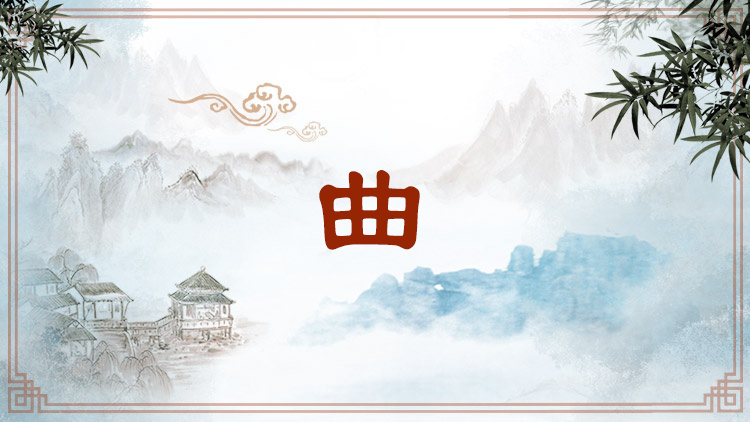
曲是继诗、词之后兴起的一种文学体式,一般指宋金以来的北曲(音乐多用北方曲调,演唱和念白用北方音)和南曲(音乐多用南方曲调,演唱和念白用南方音)。因鼎盛于元代,故又称为元曲。曲与词的体制相近,但句法比词灵活,多用口语,用韵也接近口语。曲大致分为两种类型:一种是进入杂剧、传奇的唱词,属于戏曲(也称剧曲);另一种是散曲,和诗词一样,可抒情、写景、叙事,能演唱,但没有念白和关于人物动作、表情等的提示语,又称为“清曲”。不过,总体上说,古代戏曲的成就和影响要大大超过散曲,而元代又是中国戏曲史上的黄金时代,当时有姓名记载的戏曲作家就有八十余人。关汉卿、白朴、马致远、郑光祖四位戏曲作家,代表了元代不同时期、不同流派的戏曲创作成就,因此后人称他们为“元曲四大家”。元曲在思想内容和艺术成就两方面都体现了独有的特色,和唐诗、宋词、明清小说一样,成为中国文学史上一座重要的里程碑。
Qu (曲) is a literary form that came into being later than poetry and ci (词). It generally refers to the northern- and southern-style melodies created in the Song and Jin dynasties. Northern melodies were composed mostly with tunes in northern China and performed in northern dialect, while southern melodies had southern tunes and southern dialect. Since qu reached its peak in the Yuan dynasty, it is generally known as Yuan qu or Yuan opera. Qu is similar to ci in form but is more flexible in sentence structure, and colloquial language is used. There are two main types of qu: one is northern zaju (杂剧) opera and southern chuanqi (传奇) opera; such qu is known as xiqu (戏曲) or juqu (剧曲). The other type is sanqu (散曲) or lyric songs, also known as qingqu (清曲). As with other forms of poetry, sanqu describes a scene, a sentiment or an event and can be sung, but it has no spoken parts or instructions for performers' movements and expressions. Generally speaking, the old-style opera is much more accomplished and influential than sanqu. The Yuan period was a golden age in the development of Chinese opera. There are more than 80 known playwrights from that time. Guan Hanqing, Bai Pu, Ma Zhiyuan, and Zheng Guangzu represent different styles from different stages of the Yuan opera, and they are recognized as the four leading Yuan opera writers. Yuan opera has distinctive plots and artistic appeal. Together with Tang and Song poetry and Ming and Qing fiction, it marks an important milestone in the historical development of Chinese literature.
引例 Citation:
◎世称曲手,必曰关、郑、白、马。(王骥德《曲律·杂论》)
世人称元代戏曲高手,一定推关汉卿、郑光祖、白朴、马致远四人。
When it comes to leading opera writers of the Yuan dynasty, Guan Hanqing, Zheng Guangzu, Bai Pu, and Ma Zhiyuan come to mind. (Wang Jide: On the Melody and Writing of Chinese Operas)
推荐:教育部 国家语委
供稿:北京外国语大学 外语教学与研究出版社
责任编辑:钱耐安





